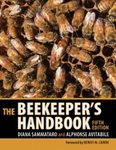By: Helen E Roy(Editor), Fernando E Vega(Editor), Dave Chandler(Editor), Mark S Goettel(Editor), Judith K Pell(Editor), Éric Wajnberg(Editor)
198 pages, b/w illustrations, tables
![The Ecology of Fungal Entomopathogens The Ecology of Fungal Entomopathogens]()
Click to have a closer look
About this book
Contents
Customer reviews
Biography
Related titles
About this book
Understanding of the ecology of fungal entomopathogens has vastly increased since the early 1800's, but remains challenging. The often complex interactions between pathogen and host are being unravelled through eloquent research and the importance of the often subtle interactions, in determining the success or failure of biological control, cannot be underplayed. The realm of ecology is vast and deciphering insect-fungal pathogen interactions within an ecological context will take us on voyages beyond our imagination. The Ecology of Fungal Entomopathogens brings together the work of renowned scientists to provide a synthesis of recent research on the ecology of fungal entomopathogens exploring host-pathogen dynamics from the context of biological control and beyond.
Contents
- Deep Space and hidden depths: understanding the evolution and ecology of fungal entomopathogens
- Fungal evolution and taxonomy
- Molecular ecology of fungal entomopathogens: molecular genetic and their applications in population and fate studies
- Principles from community and metapopulation ecology: application to fungal entomopathogens
- Challenges in modeling complexity of fungal entomopathogens in semi-natural populations of insects
- Fungal entomopathogens in a tritrophic context
- Entomopathogenic fungi and insect behavior: from unsuspecting hosts to targeted vectors
- Fungal entomopathogens in the rhizosphere
- Endophytic fungal entomopathogens with activity against plant pathogens: ecology and evolution
- Ecological considerations in producing and formulating fungal entomopathogens for use in insect biocontrol
- Fungal pathogens as classical biological control agents against arthropods
- Ecological factors in the inundative use of fungal entomopathogens
- Conservation biological control using fungal entomopathogens
Customer Reviews
Biography
Dr. Helen Roy leads zoological research in the Biological Records Centre at the NERC Centre for Ecology & Hydrology (UK). The focus of her research is insect community interactions with particular emphasis on the effects of environmental change. She has been working on the ecological interactions between fungal entomopathogens and their hosts for 15 years; this continues to be a source of fascination. She has been an associate editor of BioControl since 2006.
Dr. Fernando E. Vega is an entomologist with the United States Department of Agriculture, Agricultural Research Service, in Beltsville, Maryland. He conducts research on biological methods to control the coffee berry borer, the most important insect pest of coffee throughout the world. He is co-editor, with Meredith Blackwell, of Insect-Fungal Associations: Ecology and Evolution (2005), and serves as an Editorial Board Member for Fungal Ecology.
Dr. Dave Chandler is an insect pathologist at the University of Warwick, UK. He has studied entomopathogenic fungi for just over 20 years. He has particular interests in entomopathogenic fungi as biocontrol agents of horticultural crops, fungal physiology and ecology, and the pathogens of honeybees.
Dr. Mark Goettel is an insect pathologist at the Lethbridge Research Centre of Agriculture & Agri-Food Canada, specializing in the development of entomopathogenic fungi as microbial control agents of insects. In addition to this research, he has been extensively involved in the review and revision of the regulations for registration of microbial control agents and has addressed regulatory and safety issues at the international level. He is presently President of the Society for Invertebrate Pathology and has been Editor-in-Chief of Biocontrol Science & Technology since 2000.
Dr. Judith K. Pell heads the Insect Pathology Group in the Department for Plant and Invertebrate Ecology at Rothamsted Research. She leads research on the ecology of entomopathogenic fungi, to elucidate their role in population regulation and community structure and to inform biological control strategies. Specifically: intraguild interactions; the relationships between guild diversity, habitat diversity and ecosystem function; pathogen-induced host behavioural change.
Dr. Éric Wajnberg is a population biologist specialised in behavioural ecology, statistical modelling and population genetics. He is also an expert in biological control, with more than 20 years experience of working with insect parasitoids. He has been the Editor in Chief of BioControl since 2006.
By: Helen E Roy(Editor), Fernando E Vega(Editor), Dave Chandler(Editor), Mark S Goettel(Editor), Judith K Pell(Editor), Éric Wajnberg(Editor)
198 pages, b/w illustrations, tables
"The ecology of fungal entomopathogens covers in its 13 chapters comprehensive reviews of entomopathogenic fungi and insect biological control from an ecological perspective. [...] an excellent reference and timely update for insect mycologists and fungal ecologists [...] that will challenge this research community to delve more deeply into the hidden lives of insect pathogenic fungi."
– Stephen A. Rehner, Ecology, Vol. 92 (2), 2011



































